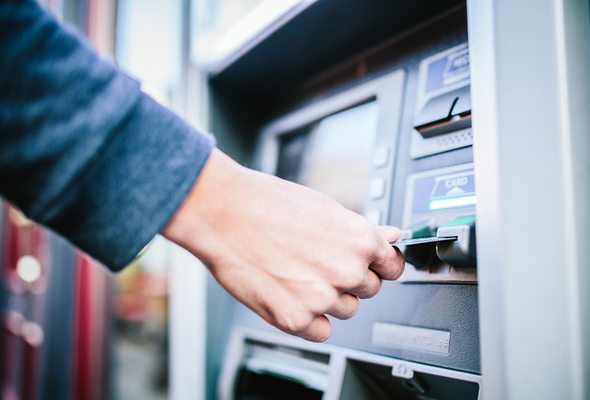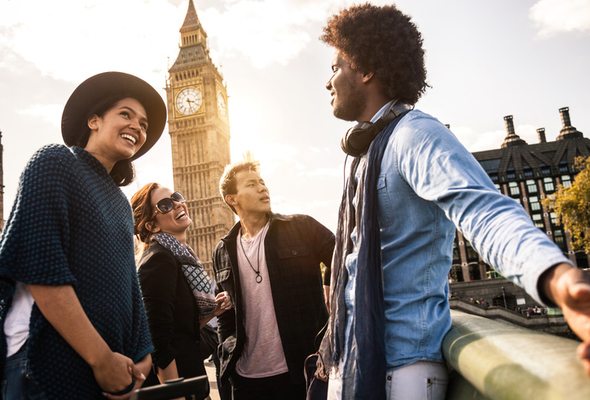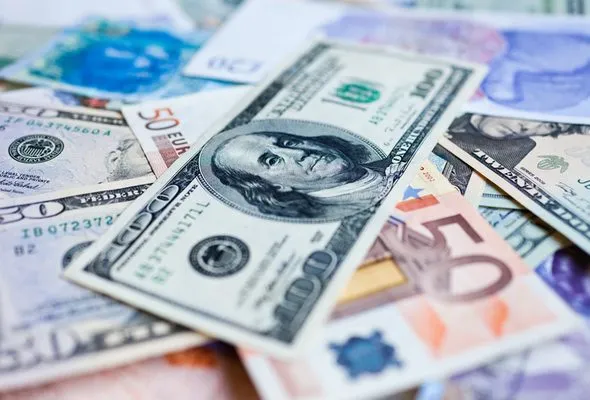If you’re planning to go abroad soon, you’ll need foreign currency. While you could make all your purchases with a credit or debit card, you run the risk of wasting too much money on foreign transaction fees. One way to avoid that is to exchange currency and carry around cash. Unfortunately, sometimes getting access to foreign funds can be expensive. If you’re on a mission to save money, here are five cheap ways to purchase foreign currency.
If you want to exchange currency, a financial advisor can help you find low-cost options, explain the fees involved and suggest ways to access foreign cash.
1. Stop By Your Local Bank
Banks and credit unions are the best places to exchange currency. Some financial institutions will even order currency, or allow you to order it online, and ship it to your home. That may be a convenient way to get the money you need for your trip. However, if you have to pay shipping fees, you could lose a lot of money in the process.
A cheaper way to get access to foreign currency is to buy it from your local bank branch in person. You may not have to pay a fee at all, as a loyal customer. Plus, larger banks often get access to the best exchange rates. The process is pretty simple and you could be able to exchange the money you need in the matter of minutes.
2. Visit an ATM
Another option, if you’re unable to go to a bank branch before it’s time to leave, is to stop by an ATM. If the ATM is able to process foreign transactions, and is in your bank’s network, you should have to pay little to no fees for your withdrawals, If not, you could take U.S. cash out and plan on exchanging it for the going rate when you enter the country.
You can also find out whether your bank has a foreign affiliate. If it does, you may be able to withdraw funds from one of their ATMs once you arrive. Be mindful of these withdrawal fees and think carefully about how much cash you intend to use before making the transaction. They can add up quickly.
3. Consider Getting Traveler’s Checks

Another way to exchange currency is to purchase traveler’s checks. You can get travelers checks from most banks or credit unions. You may be able to buy them from your bank or credit union, but you’ll likely have to pay a small fee.
Another option is to use a prepaid travel credit card from companies like American Express or MasterCard. These work like debit cards, but you load money onto them ahead of time, sometimes at better exchange rates than you’d get while traveling. Some also offer cash back on purchases, making them a practical way to manage money abroad.
Because these cards became so popular, traveler’s checks have mostly disappeared. These paper checks were once widely used for foreign travel, but high fees and fewer places accepting them led banks like American Express to stop offering them. You can still use existing checks, but new ones are no longer available from most major banks or travel services.
4. Buy Currency at Your Foreign Bank Branch
Opening a bank account in a foreign country might make sense if you frequently travel there, or especially if you own property in the country. If the bank sells currency, you could wait until you arrive to get the funds you need. Setting up an account may take time, so you’ll either need to do it in advance or open the account so you can access it later during your next trip.
Even if you don’t open a foreign bank account, these bank branches still might be able to exchange currency for you. If they are willing to do so you’ll likely have to pay a fee, just as you would in the U.S. if you aren’t a banking customer.
5. Order Currency Online
Another low-cost way to get foreign currency is to order it online. Bank of America and Wells Fargo provide a currency delivery services for their customers. Some travel agencies and websites also mail cash to you, but there is usually a shipping fee that could be waived depending on the order amount.
These services usually charge lower fees than other exchange options. They may also show their rates next to real-time bank rates, so you can see the difference. It’s also easier to order online or through an app, especially if you plan ahead and get the money before your trip.
Types of Exchange Currency Fees to Look Out For
Before you exchange money for a trip, keep in mind that you could get charged different fees. Some places use their own exchange rate, which is usually worse than the official rate. This difference lets them make money on the exchange. Others charge a fee just to handle the exchange, either as a flat amount or a percentage of what you’re exchanging.
Additionally, you might also pay extra at airports, hotels, or tourist areas where it’s more convenient to exchange money. Using an ATM in another country can lead to fees from both the ATM and your own bank. If you use a card for purchases in a different currency, there may be a foreign transaction fee of 1–3%.
Finally, take note that some services charge a set fee no matter how much you exchange, which isn’t a good deal if you’re only exchanging a small amount. If you’re exchanging one foreign currency into another, you could also be charged twice—once for each conversion.
Bottom Line

If you’re traveling to Mexico, England or somewhere else outside the U.S., you’ll likely need access to foreign funds. But depending on where you go, you might have to pay a lot of money in order to exchange currency. Some of the cheapest ways to get foreign currency include purchasing it from your bank and withdrawing money from an in-network ATM. Keep in mind that you’ll likely get stuck paying higher fees if you exchange currency at the airport, a currency exchange counter or a hotel.
Tips for Money Management
- If you have financial questions beyond currency exchanges, you should consider speaking with a financial advisor. Finding a financial advisor doesn’t have to be hard. SmartAsset’s free tool matches you with vetted financial advisors who serve your area, and you can have a free introductory call with your advisor matches to decide which one you feel is right for you. If you’re ready to find an advisor who can help you achieve your financial goals, get started now.
- One way to avoid exchanging cash for a shorter trip is to have a credit card that doesn’t charge foreign transaction fees. You’ll want to have plenty of balance on the card for your trip, and make sure that the credit card company knows you’re traveling prior to your trip so that you don’t get stuck with a card that is declined for security reasons.
Photo credit: ©iStock.com/enjoynz, ©iStock.com/RyanJLane, ©iStock.com/LeoPatrizi
